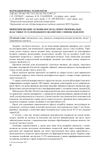 May 2023 in “Journal of Clinical Medicine”
May 2023 in “Journal of Clinical Medicine” New understanding and treatments for hair loss are improving, but more research is needed.
January 2023 in “Italian journal of dermatology and venereology” The supplement effectively improved hair growth and reduced hair loss safely.
 January 2023 in “Health science reports”
January 2023 in “Health science reports” French maritime pine bark extract significantly increased hair density in menopausal women.
 11 citations
,
November 2022 in “JAMA dermatology”
11 citations
,
November 2022 in “JAMA dermatology” Some nutritional supplements may help treat hair loss with generally mild side effects.
 1 citations
,
July 2022 in “Clinical and Experimental Dermatology”
1 citations
,
July 2022 in “Clinical and Experimental Dermatology” Menopause can cause hair problems.
 3 citations
,
March 2022 in “International Journal of Trichology”
3 citations
,
March 2022 in “International Journal of Trichology” Special supplements with collagen, vitamins, and minerals can help treat hair loss.
 23 citations
,
January 2021 in “Journal of Dermatological Science”
23 citations
,
January 2021 in “Journal of Dermatological Science” The document concludes that we need more research to understand Telogen Effluvium and find effective treatments.
 40 citations
,
May 2020 in “Cureus”
40 citations
,
May 2020 in “Cureus” The conclusion is that treatments for Telogen Effluvium exist, but standard treatment guidelines are needed.
6 citations
,
January 2020  3 citations
,
May 2019 in “Journal of Cosmetic Dermatology”
3 citations
,
May 2019 in “Journal of Cosmetic Dermatology” Miliacin with polar lipids helps hair growth and improves hair loss in women.
 9 citations
,
September 2018 in “Clinical, Cosmetic and Investigational Dermatology”
9 citations
,
September 2018 in “Clinical, Cosmetic and Investigational Dermatology” One supplement improved hair loss and quality faster and more effectively than the other in treating telogen effluvium.
11 citations
,
July 2018 in “AJGP” Low-dose oral minoxidil effectively reduces hair loss in women with female pattern hair loss.
 8 citations
,
November 2017 in “PubMed”
8 citations
,
November 2017 in “PubMed” New research suggests treating hair loss should focus on common inflammation rather than individual molecules.
 21 citations
,
January 2016 in “Skin appendage disorders”
21 citations
,
January 2016 in “Skin appendage disorders” Alfredo Rebora suggested a new, easier way to classify hair loss in Telogen Effluvium, adding a type possibly related to autoimmune diseases.
research Hair
3 citations
,
January 2014 in “Elsevier eBooks” Hair can reveal toxic elements and drugs in the body.
 17 citations
,
November 2012 in “Maturitas”
17 citations
,
November 2012 in “Maturitas” The conclusion is that proper evaluation and treatment of hair loss in midlife women is important, considering the emotional impact and potential for various treatments.
 98 citations
,
October 2012 in “Dermatologic Clinics”
98 citations
,
October 2012 in “Dermatologic Clinics” Eating the right nutrients can improve hair health, but taking extra supplements usually doesn't help unless you have a deficiency.
 36 citations
,
August 2011 in “Journal of dermatological science”
36 citations
,
August 2011 in “Journal of dermatological science” Human hair has a protective lipid layer that can be damaged by moisture and treatments, affecting hair growth and health.
 162 citations
,
August 2004 in “Journal of Investigative Dermatology”
162 citations
,
August 2004 in “Journal of Investigative Dermatology” Hair loss causes stress and affects mental health; treatment and support needed.
 14 citations
,
December 2003 in “International Journal of Cosmetic Science”
14 citations
,
December 2003 in “International Journal of Cosmetic Science” Hair growth and shedding are linked and can be disrupted, causing a delay known as the hair eclipse phenomenon, which is common in certain hair conditions and could lead to new treatments.
 70 citations
,
June 2003 in “Journal of Investigative Dermatology Symposium Proceedings”
70 citations
,
June 2003 in “Journal of Investigative Dermatology Symposium Proceedings” TrichoScan is a reliable method for measuring hair growth and is useful for assessing hair loss treatments.
 144 citations
,
July 2002 in “Clinical and Experimental Dermatology”
144 citations
,
July 2002 in “Clinical and Experimental Dermatology” Telogen effluvium is a common type of hair loss that can resolve on its own or become chronic, with treatment depending on early diagnosis.
 90 citations
,
October 1996 in “Dermatologic Clinics”
90 citations
,
October 1996 in “Dermatologic Clinics” Growth factors are crucial for hair development and could help treat hair diseases.























